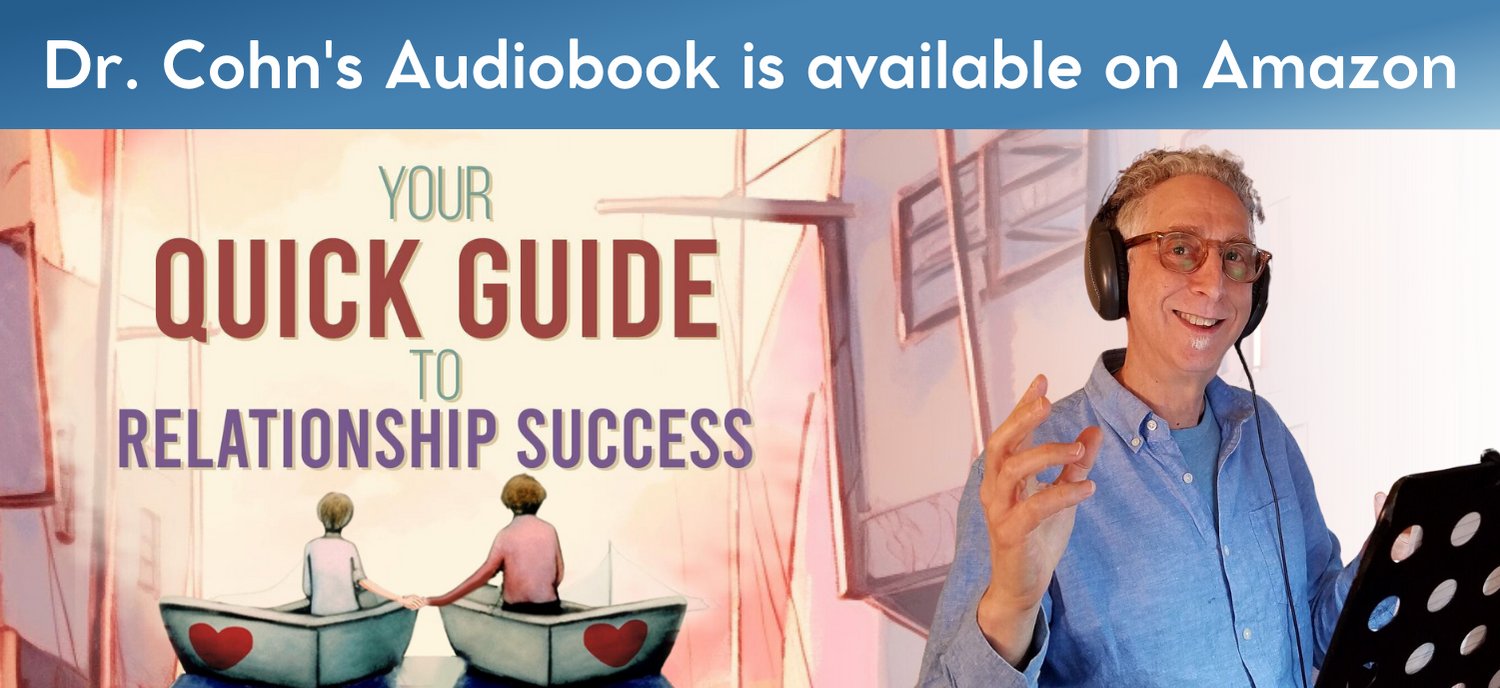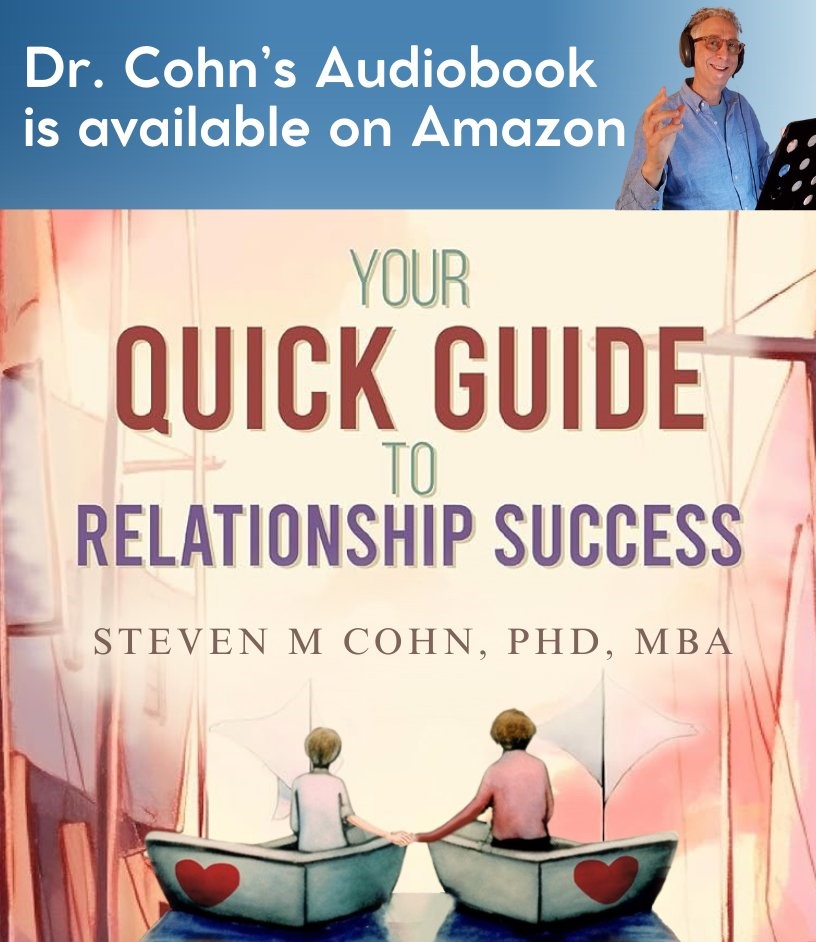- Home
- Christian Marriage Counseling
- Does Marriage Counseling Work
Does Marriage Counseling Work?
Have you ever asked yourself the question, "does marriage counseling work?" You may have had friends who have been to a relationship counselor, or you may have considered it yourself when things got rough in your own marriage.
Steven M Cohn, PhD, LMFT
Virtual Marriage and Couples Counseling
Serving Clients Throughout Oregon
503-282-8496

Wondering Does Marriage Counseling Work?
Every marriage therapist is different, so there is no universal answer to the question “does marriage counseling work?” However, in a national survey(1) of clients from over 500 marriage and family counselors, over 90% were satisfied with the help they received and said they were able to deal more effectively with problems after attending counseling. An interesting side-effect was that over 70% of the clients said their kids’ behavior also improved. Perhaps when you look at things as a kid does, marriage counseling works really well.
Almost everyone has seen the sitcom version of marital therapy where the therapist has the couple do something touchy-feely like holding a kiss for two full minutes or having a scheduled date night, which always turns out to be a disaster on TV. The characters generally end up with the same question you have: "How does marriage counseling work for anyone?” Because sitcoms have to resolve everything in 30 minutes, you really don’t get a sense of the level of commitment that is required of a real-life couples counseling client.
Relationship therapy works best when a couple is motivated and committed to the process. I have found that couples, on average, stay in therapy for between 18 and 22 sessions. Couples who wait “too long” to enter therapy may find that they will need more sessions to overcome their problems. How long is too long to wait? There’s no fixed answer. Perhaps it will be heartening to know that the average couple waits for between seven and eight years from the time that problem starts before they phone a marriage or relationship counselor. Nevertheless, the sooner you contact a therapist the better.
To answer the question, does relationship therapy work, you must first consider what problems are troubling your marriage. For many people, the issue is communication. For others, it is problem-solving, issues with in-laws, arguments about money, sexual frustration, substance abuse, domestic violence, or even mental illness. Obviously, some of these problems are more easily solved than others. Regardless of the issue, you will want to choose an experienced marriage counselor. Whenever possible it is wise to choose a Relationship Specialist. Ask about a prospective therapist’s training, education, and experience. If you don’t feel you are connecting with one therapist, don’t give up on the process. You may need to talk with several marriage counselors before you find a good fit.
As you can see, the answer to this question: “Does marriage counseling work?” is complex because the issue of marital happiness is also complex. A small percentage of therapists may want to use an academic instrument to measure the success of your marriage counseling.(2) One such instrument is called the Dyadic Adjustment Scale. However, fewer than 30% of couples therapists reply on such instruments.(3) Most therapists reply on their judgment and experience and on the subjective information they collect after interviewing the couple.
In choosing a marriage or couples counselor there are some important questions that you should be asking. Why? According to an article in The Chicago Tribune, one of the primary reasons marriage or couples counseling fails is that a significant number of counselors who offer couples counseling don't know what they're doing!
You might be surprised to learn that a therapist can see couples even if they've never been trained to work with couples.
How does this happen? The therapist simply passes the licensing exam, that's how. But how can they pass the licensing exam without being trained to work with couples? By taking a study course that teaches them how to answer the questions on the licensing exam, that's how. Being licensed doesn't make a person a good marriage or couples therapist, it just means they passed a test.
Be sure to ask any protentional therapist claiming to work with couples if they received direct clinical training with couples, under the guidance of a qualified supervisor.
The next thing to understand is how often that therapist works with couples, regardless of whether they're trained to work with couples.
If a therapist works mostly with individual clients and occasionally works with couples, that therapist hasn't built a strong skill set for marriage or couples counseling. And that's what the Chicago Tribune article was referring to. A therapist who mostly sees individuals is more likely to treat couples counseling as seeing two individuals at the same time. In doing so, they aren't treating the relationship.
A Relationship Specialist, someone who works exclusively with marriages and couples, will be treating your relationship and the dynamics in the relationship.
End Notes
(1) Marlborough, Ken, Retrieved from “Does Marriage Counseling Work?” http://www.mayoclinic.com/health/marriage-counseling/MH00104#
(2) Spanier, Graham B., “The Measurement of Marital Quality,” Journal of Sex and Marital Therapy, Volume 5, Issue 3, Autumn, 1979: 288-300
(3)Lavee, Journal of Marital and Family Therapy, 2006, April
Share
Follow

Steven M Cohn, PhD is honored to have been featured on CNBC.com.

Steven M Cohn, PhD is pleased to have been featured on Koin 6 Television: "Boost In The Bedroom."

Steven M Cohn, PhD is pleased to have been featured on both KATU.com and KATU Channel 2 Television.

Steven M Cohn, PhD is pleased to have been featured on Oregon Live "Why Oregon's Latest Divorce Statistics May Be Divorced From Reality"

Steven M Cohn, PhD, MBA, LMFT has been named one of the top three marriage counselors in Portland, Oregon three years in a row by the non-profit organization Three Best Rated



